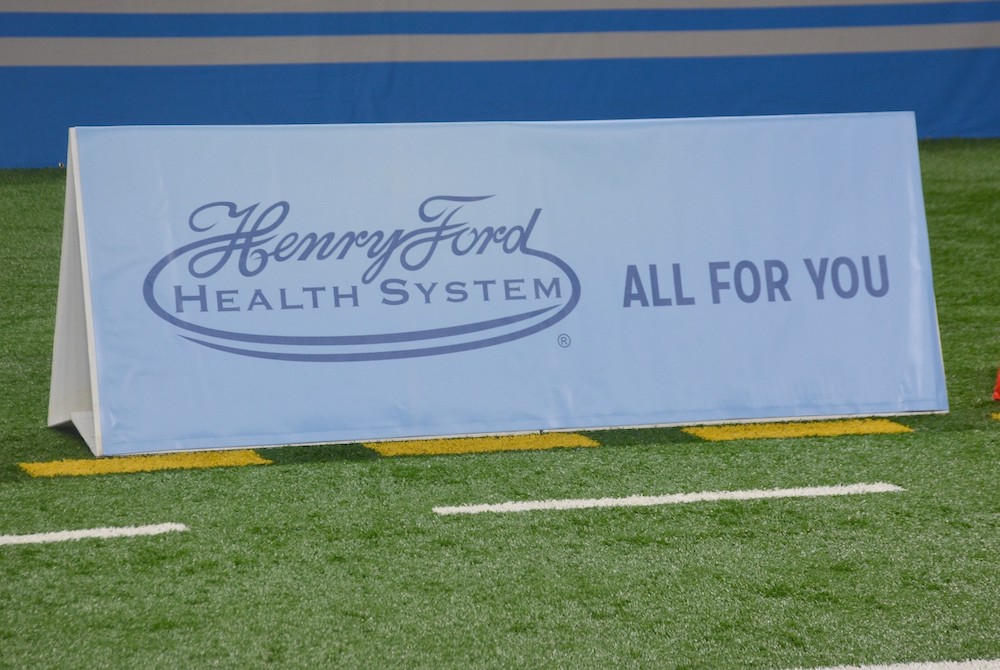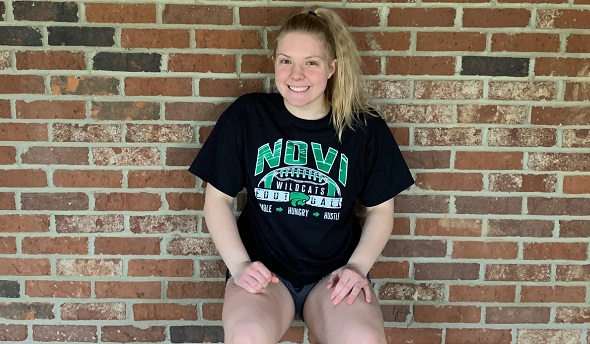
How Can COVID-19 Impact Student-Athletes' Return-To-Play?
October 5, 2021
COVID-19 And Student Athletes: How Can the Virus Impact Return-To-Play?
The end of summer marked the start of the school year, and for student athletes, the kickoff of the fall sports season. For many, COVID-19 sidelined practices, team gatherings and games to some extent last year. And while there is still hope that young athletes will have more opportunity to play this season despite rising cases of the Delta variant, there are other factors causing concern among athletes and their parents.
According to Ramsey Shehab, M.D., a sports medicine physician for Henry Ford Health System, many athletes are concerned about reaching peak performance after a long time off or after they have recovered from a COVID diagnosis. He reassures students that the feeling of exhaustion or even underperformance compared to past years is to be expected when you take time off or after fighting an illness.
“When you are infected with a virus, it taxes your immune system, and all of your energy goes towards fighting off that infection,” says Dr. Shehab. “You’ll likely feel weak and more tired during this time.”
Fortunately, as the body begins to recover, you’ll start to feel more like yourself again as you get your energy back. But this doesn’t mean that you won’t lose some of that fitness and endurance you’ve built up.
“It only takes about a week of deconditioning to set you back from peak athletic abilities,” says Dr. Shehab. “It is completely expected that your body will need time to get back to performing at your best.”
Playing Sports After Recovering From COVID-19
The unfortunate news: COVID-19 affects people differently in the long term. Some people are able to recover and get back to their routine without delay, whereas others see further complications months after an infection.
Akshay Khandelwal, M.D., a cardiologist with Henry Ford Health System, breaks down some of the more serious findings regarding COVID-19 and your heart health.
“With COVID-19, there is a risk of direct injury like heart failure or an arrhythmia due to the stress your body is under while fighting off the virus,” says Dr. Khandelwal. “As a result, having the virus can cause inflammation of the heart, a condition called myocarditis.”
Because of this, talking to your doctor before returning to a sport is a must if you had COVID or are recovering from the virus. It is important to make sure there are no systemic changes to your body such as overall heart health and lung function. They will be able to rule out any long-term effects that could impact your fitness output.
Expert-Recommended Steps for Return-To-Play
As you get back to your game, both experts share their insights for a healthy recovery:
1. Take quarantine periods seriously. If you are sick, even if you don’t necessarily feel sick, make sure you are taking time to rest and recover properly. “Don’t try to push or overexert yourself,” says Dr. Khandelwal. “It could prolong your recovery.”
2. Get back to training slowly. “Start using low-exertion activities to get your body used to working out again,” says Dr. Shehab. “Once you are able to handle each activity, you can push ahead to something more challenging.” Realistically, it may take a couple of weeks before you are able to get back to your peak.
3. Listen to your body. If workouts seem increasingly difficult, talk with your doctor or trainer before pushing yourself further. You can also help your body recover by making healthy, thoughtful choices:
► Get plenty of sleep
► Warm up and cool down before and after workouts
► Stay hydrated
► Take breaks when you’re tired
► Practice injury prevention
► Make smart food choices
4. Get vaccinated. If medical or religious reasons, or age requirements aren’t stopping you from getting the vaccine, consider getting the shot for yourself and those around you. The Delta variant is highly transmittable, meaning that, it is much easier for it to spread to teammates and family members than the original strain of the virus.
To learn more about the COVID-19 vaccine, visit our Vaccine FAQs page.
Talk to your doctor to learn more about safely returning to a sport. To find a doctor, visit henryford.com or call 1-800-436-7936.
Dr. Ramsey Shehab is the deputy chief of Sports Medicine at Henry Ford Health System. He sees patients at the Henry Ford Center for Athletic Medicine and Henry Ford Medical Center - Bloomfield Township.
Dr. Akshay Khandelwal is an interventional cardiologist who sees patients at Henry Ford Medical Center – Second Avenue.

Pandemic Planning: Creating a Schedule
December 15, 2020
By Stacy Leatherwood Cannon, M.D.
Henry Ford Health System
With coronavirus continuing to grab headlines and physical distancing orders still in place, every day tends to feel the same.
More parents than ever are working from home, have reduced hours or may even be out of work due to the pandemic. Those who are working at full capacity may feel the strain of trying to balance work and childcare. Many schools and extracurricular programs have been moved online or canceled.
With both parents and kids feeling the stress of new daily routines, it's more important than ever to create a schedule that all family members can follow.
Staying On Schedule
When schedules are off (particularly sleep schedules), children and teens may be at greater risk for depression and anxiety. Younger children may act out because they have increased energy with no outlet. The good news: Creating a schedule — and sticking with it — can help everyone feel more grounded.
Children thrive with an understanding of the daily routine. Knowing what to expect and what they need to do reduces anxiety and helps kids feel more in control.
A few ways to achieve an effective schedule:
• Make it a family affair: Instead of drawing up a schedule and expecting everyone to stick to it, involve your children in the process. Call a family meeting where you come up with sleep and waking times, mealtimes and breaks. Kids are more likely to embrace a new schedule if they played a hand in creating it.
• Enforce bedtime: Children doing remote learning may not have to rise as early to make it to school on time. Even so, it's important to set a regular bedtime so they can remain on task during daylight hours. Your best bet: Establish a bedtime routine that includes calming activities (like a bath and reading) and ensure your children go to bed at an appropriate hour. School-aged kids should get about 9 to 10 hours of sleep each night.
• Stick to mealtimes: Keeping mealtime consistent allows for a structured break where kids and parents can reconnect and troubleshoot when necessary. This is especially important with older adolescents who may work independently during the school day. Unfortunately, what works for one family member may not work for another. Ideally, families should work together to establish mealtimes, then adjust based on each individual's needs and assignments.
• Encourage breaks: Kids and adults alike become zombie-like after sitting in front of a screen for extended periods. For children who are distance learning, frequent breaks are especially important. The younger the child is, the more breaks they need to stay engaged. That said, even older kids should take breaks every 30 minutes or so to walk around, get a snack and do some simple stretches. Better yet, take your breaks together and do some jumping jacks or share a snack as a family.
Successful Scheduling
Coming up with an effective schedule that the whole family can follow is not something you do at the last minute. Plan for the week ahead over the weekend. Sit down as a family and discuss what worked — and what didn't — the previous week. Then tweak as necessary.
Most important, be patient. These are unprecedented times for all of us. And while we have months of experience dealing with this pandemic, transitioning back to school has brought new challenges.
Try to shift your focus toward the perks of this experience. This is a rare moment in history when families can come together and spend a lot of quality time together. It could be a time of growth and transformation for your whole family.
Concerned about how your children are managing the pandemic? Help is available. To find a doctor or pediatrician at Henry Ford, visit henryford.com or call 1-800-HENRYFORD (436-7936).
Stacy Leatherwood Cannon, M.D., is a board-certified pediatrician and the physician champion for childhood wellness for Henry Ford LiveWell. She sees patients at Henry Ford Medical Centers in midtown Detroit and Sterling Heights. Learn more about Dr. Leatherwood Cannon
PHOTO: Novi's Abigail Pheiffer, a senior on the MHSAA Student Advisory Council, gets in some wall sits during a break in her day.


